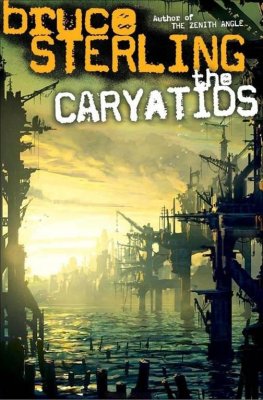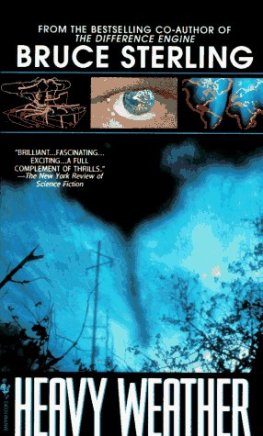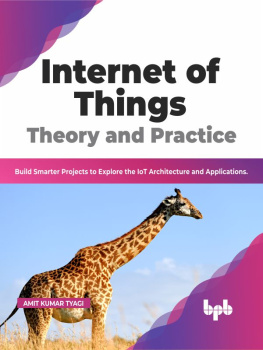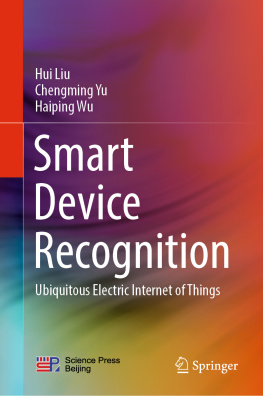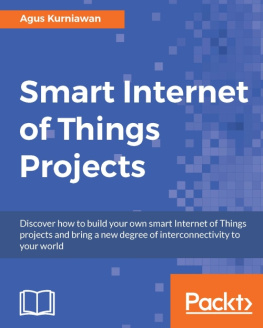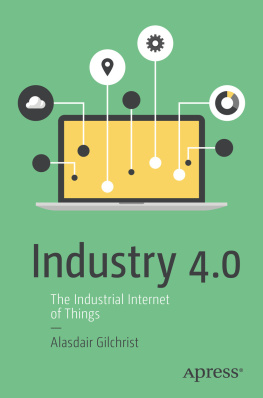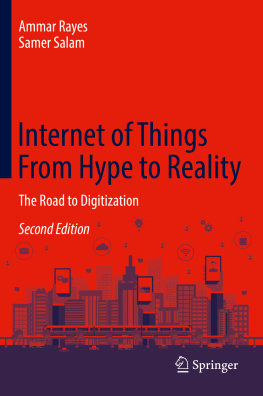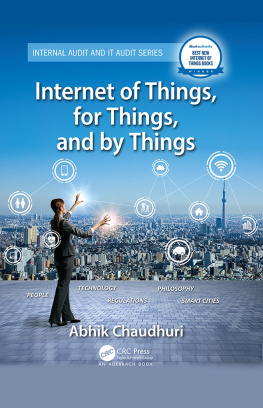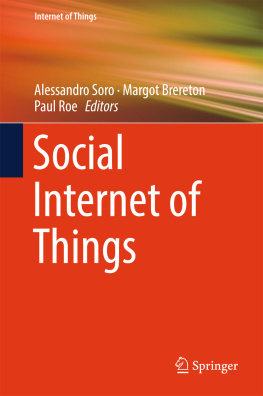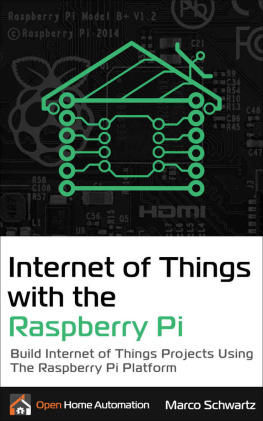The first thing to understand about the Internet of Things is that its not about Things on the Internet. Its a code term that powerful stakeholders have settled on for their own purposes.
They like the slogan Internet of Things because it sounds peaceable and progressive. It disguises the epic struggle over power, money and influence that is about to ensue. There is genuine internet technology involved in the Internet of Things. However, the legacy internet of yesterday is a shrinking part of what is at stake now.
Digital commerce and governance is moving, as fast and hard as it possibly can, into a full-spectrum dominance over whatever used to be analogue. In practice, the Internet of Things means an epic transformation: all-purpose electronic automation through digital surveillance by wireless broadband. In this essay Ill describe how this is likely to work, and what the major players think they are doing to get there.
To begin, though, I must first free the reader from any folk ideas about the Internet of Things.
So, lets imagine that the reader has a smartphone in one hand, as most people in the Twenty-Teens most definitely tend to. In the other hand, the reader has some thing. Lets say its the handle of his old-fashioned domestic vacuum cleaner, which is a relic of yesterdays standard consumer economy.
As he cheerfully vacuums his home carpet while also checking his Facebook prompts, because the chore of vacuuming is really boring, the reader naturally thinks: Why are these two objects in my two hands living in such separate worlds? In my left hand I have my wonderfully advanced phone with Facebook thats the internet. But in my right hand I have this noisy, old-fashioned, ineffective, analogue thing! For my own convenience as a customer and consumer, why cant the internet and this thing be combined?
This concept sounds pretty visionary, and its certainly enough to impress most people born during the Baby Boom, so this paradigm has been doing well in the popular press. If the reader thinks it over, he can easily refine the basic idea. This vacuum should be equipped with wireless connectivity and sensors! Also, as its owner, I should have a mobile app or dashboard that can tell me many useful and healthy things about my vacuum such as how much energy it is using, or how many toxins it found in my carpet. Also, the vacuum should run around in robot fashion, all by itself!
Thats the standard Internet of Things scenario. Its framed in the traditional language of consumer electronics. People often mock it, because they dont like so much unnecessary technical complication in their daily lives. It seems baroque, maybe even fraudulent.
Thats not whats going to happen.
The real problem with this scenario is that the reader thinks hes the hero of the story. To the vacuum company, he was the customer or consumer. In the legacy internet days, he was the user. In the Internet of Things, he lacks those privileged positions, user and customer. An Internet of Things is not a consumer society. Its a materialised network society. Its like a Google or Facebook writ large on the landscape.
Google and Facebook dont have users or customers. Instead, they have participants under machine surveillance, whose activities are algorithmically combined within Big Data silos. They dont need the reader to be the hero. Hes not some rational, autonomous, economic actor who decides to encourage the Internet of Things with his purchasing dollars. Theyre much better off when those decisions are not his to make.
The reader may be allowed to choose the casing of his smartphone and the brand of his vacuum cleaner, but the digital relation between the two of them is not his decision. He still has a role of sorts, but its much like the role he has within Google and Facebook. He gets fantastic services free of charge, and he responds mostly with dropdown menus and checkboxes, while generating data whose uses and values are invisible to him.
The reader didnt build the phone or the vacuum cleaner. He cant repair or modify them. He doesnt understand their technical workings, and when the two of them interact (by various adroit forms of wireless communication), hes not in charge of that, or of where the data goes. The Internet of Things is not a capitalist marketplace. Its a new platform for radically broadening digital activity. At the moment, its actually many balkanised intranets for digital activity, but its called internet by the power players, because they aspire to that catholic universality.
The reader is not a customer of Facebook because he never paid for Facebook. Facebooks genuine customers are the marketers those who pay Facebook for the hard labour of surveilling the billion people on Facebook. Facebook is one of the Big Five of Facebook, Amazon, Google, Microsoft and Apple.
None of them are conventional corporations as corporations used to be known. The Big Five all have important central features that previous companies never possessed: an operating system, some dedicated way to sell cultural material (music, movies, books, software), tools for productivity, an advertising business, some means of accessing the internet that they themselves more or less control (tablets, smartphones, phablets), a search engine capability, a social network, a payment solution or some similar private bank, a cloud capability and, very soon, some dedicated, elite high-speed access that used to be the democratic internet.
The Big Five are the genuine heroes of the Internet of Things. The epic drama of the Internet of Things is really their story. Its not a popular uprising except in the sense that the Big Five are really, really popular because billions of people are willingly involved in their systems. The Internet of Things is basically a recognition by other power-players that the methods of the Big Five have won, and that they should be emulated.
The Big Five are smart, profitable, capable and colossal. They are as entirely free of political constraint as the railroads or Standard Oil were in their own heyday. They sense that they can dominate because the enterprises that already dominate are much worse than they are.
Lesser enterprises, and governments as well, have grown bitter and tired of being bossed around by oil companies and bankers in a jobless, terror-riddled World Depression. They see the Internet of Things as a way to break the stasis, attract new investment, and flood the world with yet another tidal wave of cheap, connected silicon. Theyre willing to go for this prospect because they dont see anything else happening. Certainly nothing else with hundreds of billions in potential new wealth, that is.
The standard IoT pitch about the readers smart, chatty refrigerator is a fairy tale. Its like the promise of a talking chicken in every pot. Politically speaking, the relationship of the reader to the Internet of Things is not democratic. Its not even capitalistic. Its a new thing. Its digital-feudalism. People in the Internet of Things are like the woolly livestock of a feudal demesne, grazing under the watchful eye of barons in their hilltop Cloud Castles. The peasants never vote for the lords of the Cloud Castles. But they do find them attractive and glamorous. They respect them. They feel a genuine fealty to them. They cant get along in life without them.


